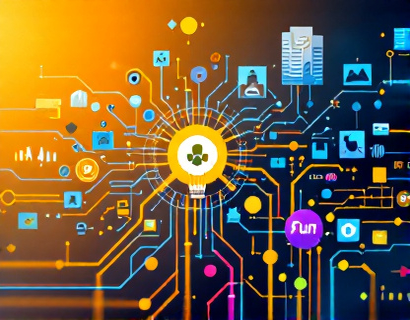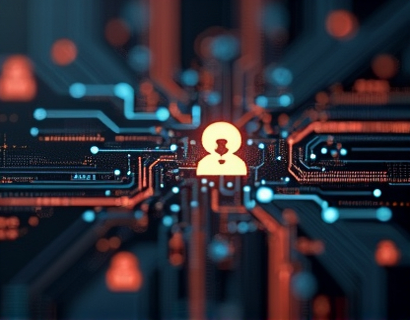Transforming Education with AI-Powered Chatbots: A Comprehensive Guide for Students, Families, and Educators
The integration of artificial intelligence in educational settings has opened new avenues for learning, making knowledge more accessible and personalized than ever before. Among these innovations, AI-powered educational chatbots stand out as a transformative tool, offering specialized insights tailored to the needs of students, families, and educators. This article delves into the capabilities and benefits of these chatbots, focusing on how they deliver industry-relevant knowledge and services through verified content, ensuring a safe and enriching educational experience for all users.
Understanding AI-Powered Educational Chatbots
AI-powered educational chatbots are sophisticated software applications designed to simulate conversation through natural language processing and machine learning algorithms. These chatbots are programmed to understand and respond to user queries with relevant and accurate information, adapting to the user's level of understanding and learning pace. Unlike traditional Q&A systems, these chatbots can engage in multi-turn conversations, providing step-by-step explanations and detailed insights on various topics.
Specialized Insights for Students
For students, AI chatbots serve as personalized tutors, offering support outside the classroom. These chatbots can provide explanations on complex subjects, from basic math to advanced science concepts, tailored to the student's current knowledge level. By interacting with the chatbot, students can clarify doubts, gain deeper understanding, and reinforce their learning. The chatbot's ability to adapt to individual learning styles and paces makes it an invaluable resource for students seeking to excel in their studies.
Personalized Learning Paths
One of the key features of AI chatbots is their capacity to create personalized learning paths for students. By assessing a student's strengths, weaknesses, and learning preferences, the chatbot can recommend specific resources, exercises, and topics for further exploration. This personalized approach not only enhances learning efficiency but also boosts student engagement and motivation.
Real-Time Assistance
Students often have questions that arise outside regular school hours. AI chatbots are available 24/7, providing immediate assistance whenever needed. This real-time support helps students overcome obstacles promptly, preventing learning gaps and ensuring continuous progress. Whether it's understanding a difficult concept or getting help with homework, the chatbot is always ready to assist.
Valuable Resources for Families
Families play a crucial role in a child's education, and AI chatbots can be a valuable ally in this journey. For parents and guardians, these chatbots offer insights into their child's learning progress, recommend educational resources, and provide tips on how to support their child's education at home. This keeps families informed and involved in the educational process, fostering a supportive learning environment.
Parental Involvement
AI chatbots can send regular updates on a student's performance, highlighting areas of strength and those needing improvement. This data-driven approach enables parents to understand their child's learning journey better and take informed actions to support their child's educational needs. Additionally, chatbots can suggest family activities and resources that promote learning and bonding, making education a family affair.
Communication with Educators
The chatbot can also facilitate communication between families and educators. Parents can use the chatbot to ask questions about school policies, upcoming events, and how to best support their child's learning at home. This streamlined communication ensures that families and educators are on the same page, working collaboratively towards the student's success.
Educators and the AI Chatbot
For educators, AI chatbots are powerful tools that can enhance teaching methods and improve student outcomes. These chatbots can assist in lesson planning, provide instant feedback on assignments, and offer professional development resources. By leveraging the capabilities of AI chatbots, educators can focus more on teaching and less on administrative tasks, leading to a more effective and fulfilling teaching experience.
Lesson Planning and Preparation
AI chatbots can help educators design engaging and effective lesson plans by suggesting relevant topics, activities, and resources based on curriculum standards and student needs. The chatbot can analyze data on student performance to recommend areas that require more attention, ensuring that lessons are tailored to meet the diverse needs of the classroom.
Instant Feedback and Assessment
Grading and providing feedback on assignments can be time-consuming for educators. AI chatbots can automate parts of this process, offering instant feedback on multiple-choice questions and written assignments. This not only saves time but also provides immediate insights into student understanding, allowing educators to address issues promptly and adjust their teaching strategies accordingly.
Professional Development
AI chatbots can also support educator professional development by recommending training resources, best practices, and innovative teaching techniques. By staying updated with the latest educational trends and technologies, educators can enhance their teaching skills and better serve their students.
Ensuring Safety and Quality
As with any technology integrated into educational settings, ensuring the safety and quality of AI chatbots is paramount. Reputable developers of these chatbots implement rigorous content verification processes to guarantee that the information provided is accurate, up-to-date, and appropriate for all age groups. This commitment to quality ensures that users, especially children, receive reliable and educational content.
Content Verification
Content verification involves cross-referencing information with trusted sources and subject matter experts to ensure accuracy. This process helps prevent the spread of misinformation and ensures that the chatbot's responses are based on verified data. For educational purposes, this is crucial in maintaining the integrity of the learning process.
Child-Friendly Versions
Recognizing the importance of safety for young users, many AI chatbot platforms offer child-friendly versions. These versions are designed with age-appropriate language, content, and interaction styles. They also include parental controls and monitoring features to ensure a secure and positive learning experience for children.
Benefits of AI-Powered Educational Chatbots
The integration of AI chatbots in education brings a multitude of benefits, transforming the way students, families, and educators interact with knowledge and each other. From personalized learning experiences to enhanced communication and support, these chatbots are reshaping the educational landscape for the better.
Enhanced Learning Experiences
By providing immediate, accurate, and personalized information, AI chatbots enhance the learning experience for students. They cater to individual learning styles and paces, making education more accessible and effective. This personalized approach not only improves understanding but also fosters a love for learning.
Increased Accessibility
AI chatbots break down barriers to education by making knowledge available anytime, anywhere. Students can access help and resources outside the classroom, ensuring that learning continues beyond the school hours. This flexibility is particularly beneficial for students with varying schedules or those in remote areas with limited educational resources.
Supportive Learning Environment
For families, AI chatbots create a supportive learning environment at home. Parents can stay informed about their child's progress and engage in their education more actively. This collaboration between home and school creates a consistent and supportive educational experience for the child.
Efficient Administrative Tasks
For educators, AI chatbots streamline administrative tasks, allowing more time to focus on teaching and student interaction. Automated feedback and assessment tools, along with access to professional development resources, contribute to a more efficient and effective teaching process.
Conclusion
The advent of AI-powered educational chatbots represents a significant leap forward in educational technology. By providing specialized insights, verified content, and a safe learning environment, these chatbots are poised to revolutionize the way we approach education. As this technology continues to evolve, it holds the potential to make education more personalized, accessible, and effective for all.











































